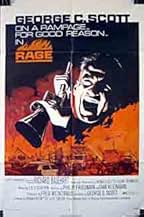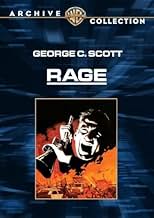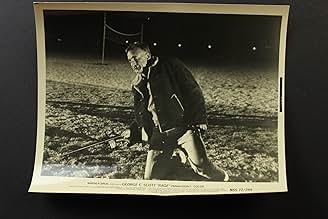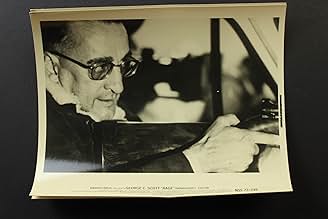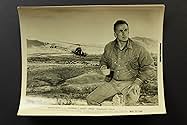IMDb RATING
6.3/10
1.5K
YOUR RATING
An accidental nerve gas leak by the military kills not only a rancher's livestock, but also his son. When he tries to hold the military accountable for their actions, he runs up against a wa... Read allAn accidental nerve gas leak by the military kills not only a rancher's livestock, but also his son. When he tries to hold the military accountable for their actions, he runs up against a wall of silence.An accidental nerve gas leak by the military kills not only a rancher's livestock, but also his son. When he tries to hold the military accountable for their actions, he runs up against a wall of silence.
- Director
- Writers
- Stars
- Director
- Writers
- All cast & crew
- Production, box office & more at IMDbPro
Featured reviews
Almost everything in this film is predictable. The failure of the military to take responsibility, the complicity of local physicians and authorities, and a complete cover-up by the military brass; all of it rather predictable.
Despite these types of nerve gas weapons being outlawed by the Geneva Convention, they still, of course, still exist, within various nefarious military installations dedicated to this type of warfare. The military does not particularly care what the Geneva Convention has to say about these weapons; all is fair under the guise of National Defense.
What transpired in the film, of course, was a tragedy, but the result was inevitable. Scott does a good job acting, and an adequate job of directing. However, the screenplay is so absolutely depressing from beginning to end, that even a raging George C Scott cannot save it. It is this predictability that ruins any chance of the film having elements like suspense or tension. Interesting to watch for Scott's performance.
Despite these types of nerve gas weapons being outlawed by the Geneva Convention, they still, of course, still exist, within various nefarious military installations dedicated to this type of warfare. The military does not particularly care what the Geneva Convention has to say about these weapons; all is fair under the guise of National Defense.
What transpired in the film, of course, was a tragedy, but the result was inevitable. Scott does a good job acting, and an adequate job of directing. However, the screenplay is so absolutely depressing from beginning to end, that even a raging George C Scott cannot save it. It is this predictability that ruins any chance of the film having elements like suspense or tension. Interesting to watch for Scott's performance.
Outstanding action. Ruthless vengeance on an uncaring military bureaucracy bent on covering the truth to protect themselves. This came out during the discovery of the Watergate cover-up.It was a timely tale of righteousness. Well acted,taut paced. One of the few times made for tv is not an excuse.
George C Scott stars and makes his directorial debut in this tense but ultimately pointless drama about a peaceful rancher who goes on a rampage of revenge after a botched military nerve-gas experiment conducted over his land leads to the death of his young son. You can feel Scott's character's frustration as he's lied to and stone-walled from every angle by the military bureaucrats who want to cover up the incident. Scott knows how to keep things moving and shows some stylish touches in the director's chair, but he can't keep the ending from being disappointing and unsatisfying. Still, all said, it's a fairly absorbing ride while it lasts. It's a movie that will likely stay with you long after the end credits roll.
While camping out, a Wyoming sheep rancher and his son are accidentally sprayed with a secret poison. The boy dies while the military covers up its mistake, enlisting civilian personnel in the cover-up. But will the father find out, and if so, what will he do.
It's important to keep in mind that the screenplay is based on a true 1968 occurrence. The Pentagon covered up poisonous contamination of several thousand sheep in Utah, and only admitted it after overwhelming evidence. I assume they were wary of being seen experimenting with poisonous chemical at a time when the Vietnam War was going badly. The movie itself is very methodical. The first part dealing with the cover-up shows how deception is spread among medical and military professionals. Surprisingly, however, no higher justifications such as national security are cited. It's more like an embarrassment than a security breach.
Anyway, Scott really low-keys it throughout, being good-citizen cooperative even as he's fed one lie after another about his son. Even after he finds out the truth, his rage is more intense than histrionic. I guess I was expecting him to explode in the scary way that only he can. Apparently, the actor wasn't happy with his performance (TCM), blaming it on his divided roles as both director and lead performer.
All in all, the movie's like a slow fuse being lit until it finally goes off. Just how sane Logan (Scott) is during those climactic moments is, of course, anybody's guess. Considering what's happened to him, his actions are understandable, if not excusable (innocents die). At the same time, the lessons are, if anything, more relevant now than then, especially with the rise of our national security state and its mass surveillance program.
(In passing—this is one of the few films I've seen to actually portray death throes as the person expires. Kudoes to Scott for including such a disturbing detail that traditional Hollywood avoided like the plague. More of that and audiences might take a different view of movie violence.)
It's important to keep in mind that the screenplay is based on a true 1968 occurrence. The Pentagon covered up poisonous contamination of several thousand sheep in Utah, and only admitted it after overwhelming evidence. I assume they were wary of being seen experimenting with poisonous chemical at a time when the Vietnam War was going badly. The movie itself is very methodical. The first part dealing with the cover-up shows how deception is spread among medical and military professionals. Surprisingly, however, no higher justifications such as national security are cited. It's more like an embarrassment than a security breach.
Anyway, Scott really low-keys it throughout, being good-citizen cooperative even as he's fed one lie after another about his son. Even after he finds out the truth, his rage is more intense than histrionic. I guess I was expecting him to explode in the scary way that only he can. Apparently, the actor wasn't happy with his performance (TCM), blaming it on his divided roles as both director and lead performer.
All in all, the movie's like a slow fuse being lit until it finally goes off. Just how sane Logan (Scott) is during those climactic moments is, of course, anybody's guess. Considering what's happened to him, his actions are understandable, if not excusable (innocents die). At the same time, the lessons are, if anything, more relevant now than then, especially with the rise of our national security state and its mass surveillance program.
(In passing—this is one of the few films I've seen to actually portray death throes as the person expires. Kudoes to Scott for including such a disturbing detail that traditional Hollywood avoided like the plague. More of that and audiences might take a different view of movie violence.)
George C. Scott has only one competitor as a player who can do a better Rage than him and that is Kirk Douglas. It's kind of fitting that one of them have on his list of credits a film entitled Rage.
I remember seeing this in the theater back in 1972 and it was one of those first films that showed the American government as something less than wise and benevolent. All the more so because Scott is one of those middle American characters who is a true believer in the Stars&Stripes and all it stand for.
Scott is a widower who owns a small sheep ranch and he and his son Nicholas Beauvy who is better known as one of the young men mentored by John Wayne in The Cowboys. As they decide to camp out with the sheep an army helicopter is flying in their vicinity. The next day Beauvy is very sick and Scott takes his son to a nearby hospital.
Where all kind of people from the military as represented by Dr. Martin Sheen and the Public Health Service as represented by Barnard Hughes are very interested in his case. Scott is admitted too and the smell of cover-up proves too much for Scott's personal physician Richard Basehart.
I can't go beyond this other than Scott's given an unbelievable amount of justification for declaring a personal war on the army and the government it fights for.
Scott hits several levels with his performance. His Rage and anger to be sure, but it's all mixed in with both sorrow and betrayal. Director Scott did well by actor Scott.
In many ways Rage is a film for today's audience and I recommend it highly.
I remember seeing this in the theater back in 1972 and it was one of those first films that showed the American government as something less than wise and benevolent. All the more so because Scott is one of those middle American characters who is a true believer in the Stars&Stripes and all it stand for.
Scott is a widower who owns a small sheep ranch and he and his son Nicholas Beauvy who is better known as one of the young men mentored by John Wayne in The Cowboys. As they decide to camp out with the sheep an army helicopter is flying in their vicinity. The next day Beauvy is very sick and Scott takes his son to a nearby hospital.
Where all kind of people from the military as represented by Dr. Martin Sheen and the Public Health Service as represented by Barnard Hughes are very interested in his case. Scott is admitted too and the smell of cover-up proves too much for Scott's personal physician Richard Basehart.
I can't go beyond this other than Scott's given an unbelievable amount of justification for declaring a personal war on the army and the government it fights for.
Scott hits several levels with his performance. His Rage and anger to be sure, but it's all mixed in with both sorrow and betrayal. Director Scott did well by actor Scott.
In many ways Rage is a film for today's audience and I recommend it highly.
Did you know
- TriviaThe story was inspired by and incident at the Dugway Proving Grounds in Utah on 13 March 1968. The U.S. Army conducted tests of a nerve agent chemical weapon, later revealed to be VX nerve gas, including spraying it from a jet aircraft. Between 3,000 and 6,000 sheep were reportedly killed. The Army did not admit fault for the incident until 1998.
- GoofsAlthough most of the officers are wearing the Vietnam Campaign and Vietnam Service ribbons, none of them wears a patch on their right shoulder depicting the unit they served with in Vietnam. The wearing of such "combat patches" is customary in the U.S. Army.
- How long is Rage?Powered by Alexa
Details
- Release date
- Country of origin
- Language
- Also known as
- Rage
- Filming locations
- Benson, Arizona, USA(Hospital scenes, Marie's truck stop sign)
- Production companies
- See more company credits at IMDbPro
Contribute to this page
Suggest an edit or add missing content



